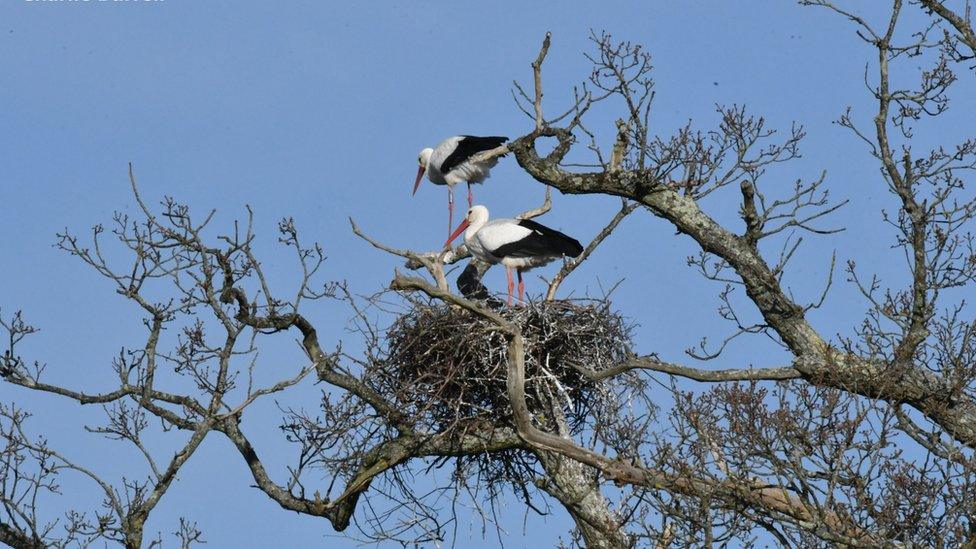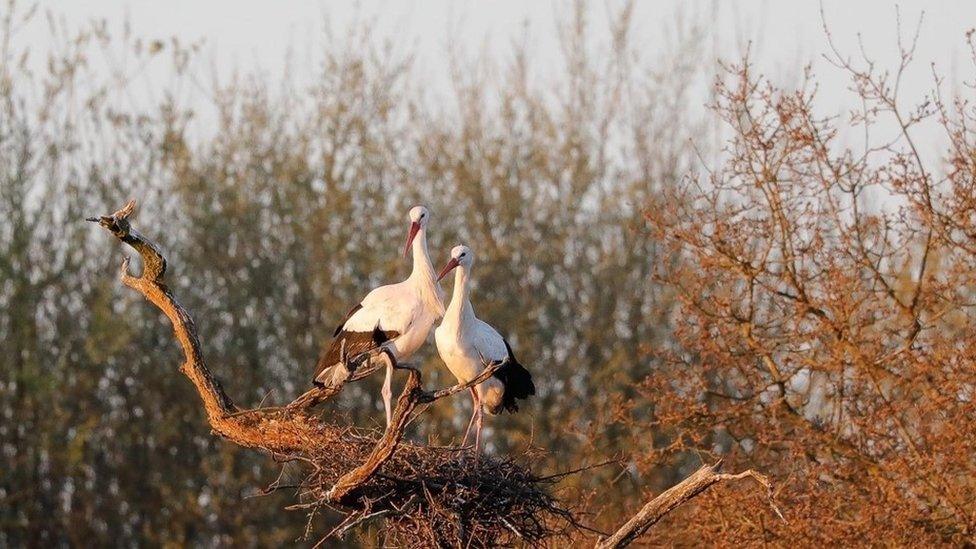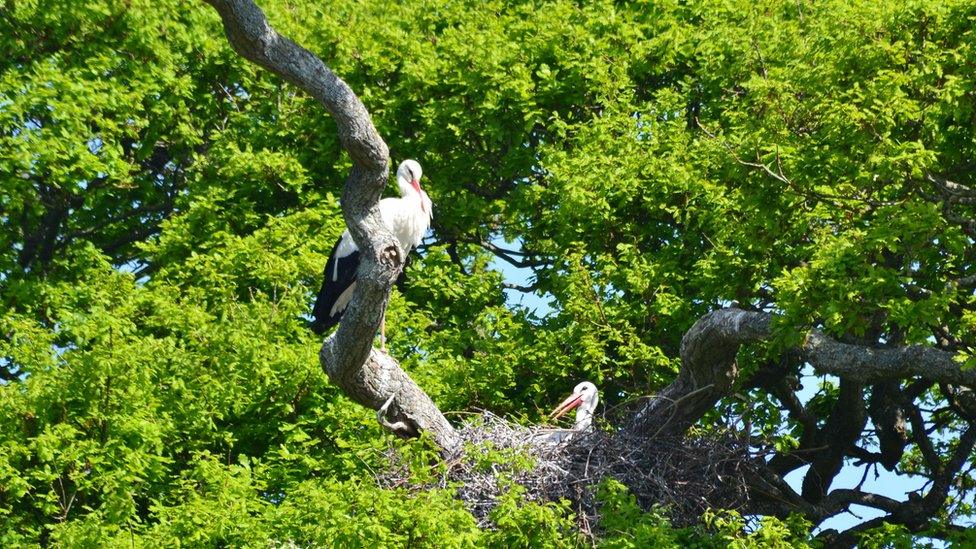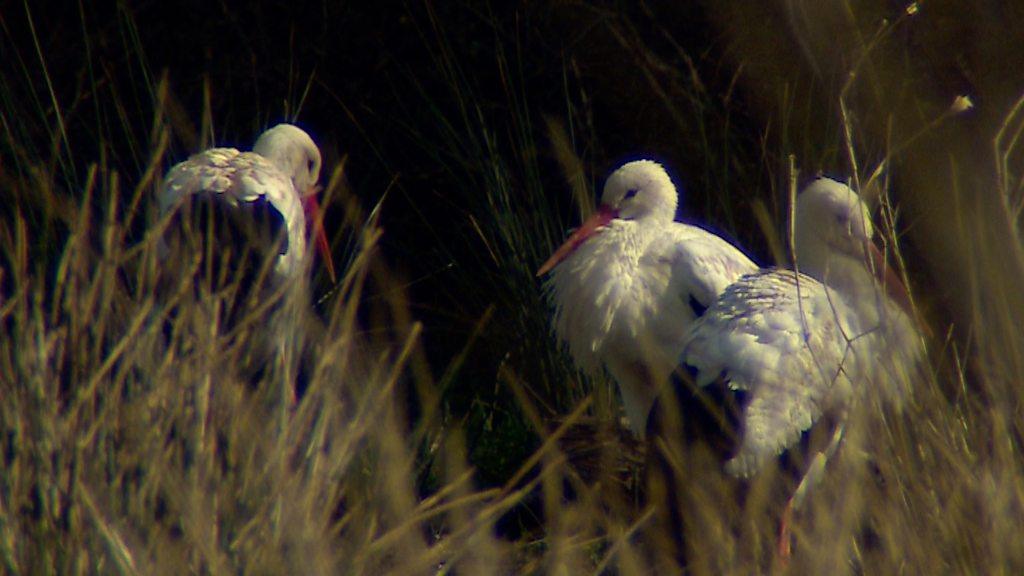Wild white stork eggs due to hatch in Sussex
- Published

Storks on the first nest which now contains five eggs
The first wild white stork chicks in the UK for hundreds of years could hatch in the next few weeks.
Three nests containing eggs are being monitored at the Knepp Estate in West Sussex.
A stork laid three eggs in a nest last year on the estate near Horsham, but they failed to hatch.
The same bird, which first came to Knepp from Poland in 2016, has now laid five eggs which are due to hatch during the first week of May.
Four eggs have been laid in a second nest, and another pair were seen mating on a third nest on 19 and 20 April, the White Stork Project said.

The White Stork Project is yet to determine if there are eggs in the third nest
The project, which is a partnership of private landowners and conservation organisations, is aiming to restore a population of at least 50 breeding pairs across the south of England by 2030.
About 250 birds are being released in Sussex after a successful breeding programme at the Cotswold Wildlife Park near Burford, Oxfordshire.
Lucy Groves, project officer for the White Stork Project, said: "We have been monitoring the nests at Knepp remotely using the latest technology and are really excited to announce that our pair from last year have nested again and have produced five eggs.
"It is set to be an exciting year for the project and we have everything crossed that these will be the first white stork chicks to hatch in the wild in the UK for hundreds of years."

Cotswold Wildlife Park has 59 eggs and four chicks which will be released at Knepp in August
White storks have been associated with the arrival of babies since the medieval times.
Couples would traditionally marry at the summer solstice, at the same time as the storks were gathering for their migration, and would return about nine months later in time for the couples' first babies.
It is thought hunting, habitat loss and persecution during the Civil War lead to their decline, the project said.
- Published13 March 2020
